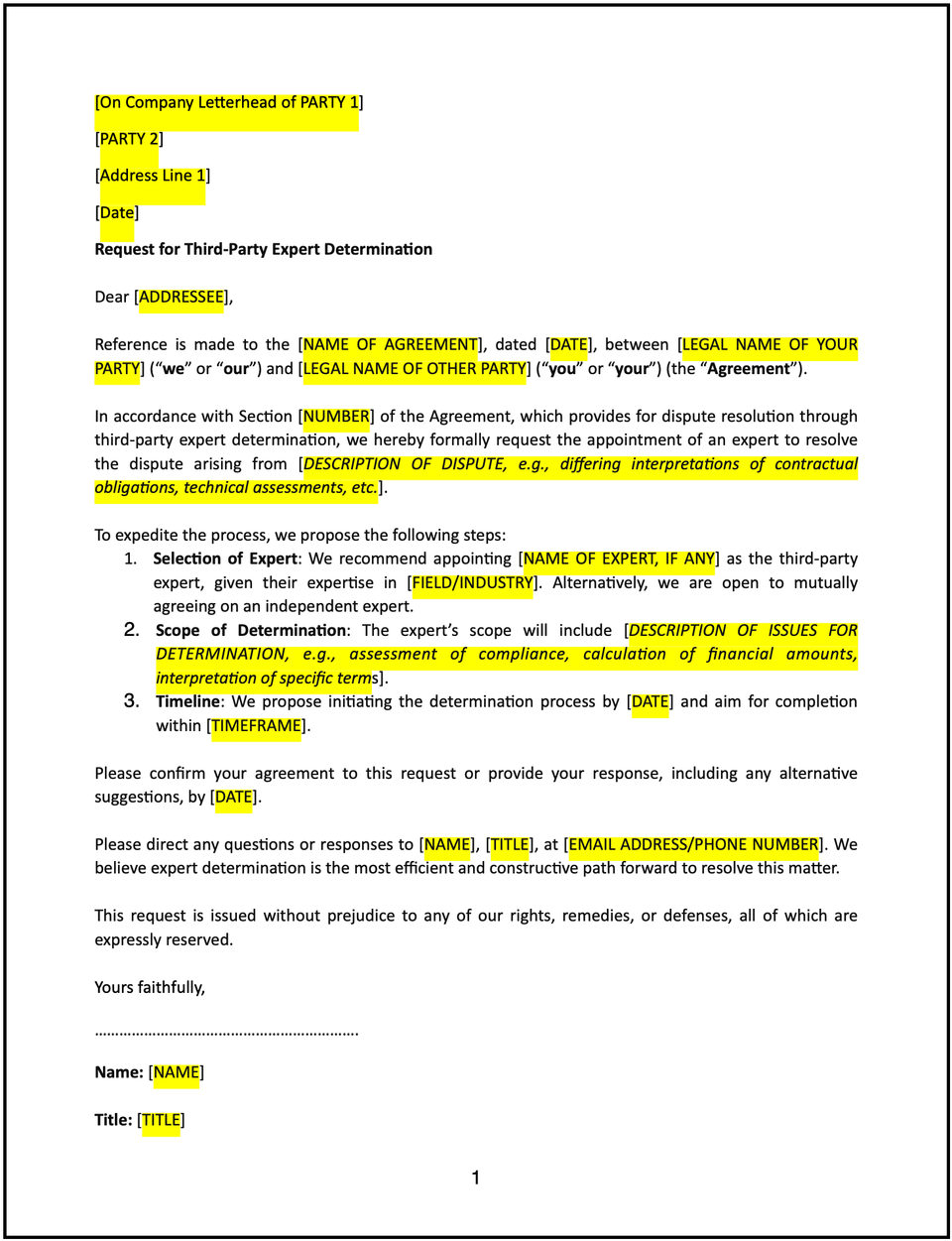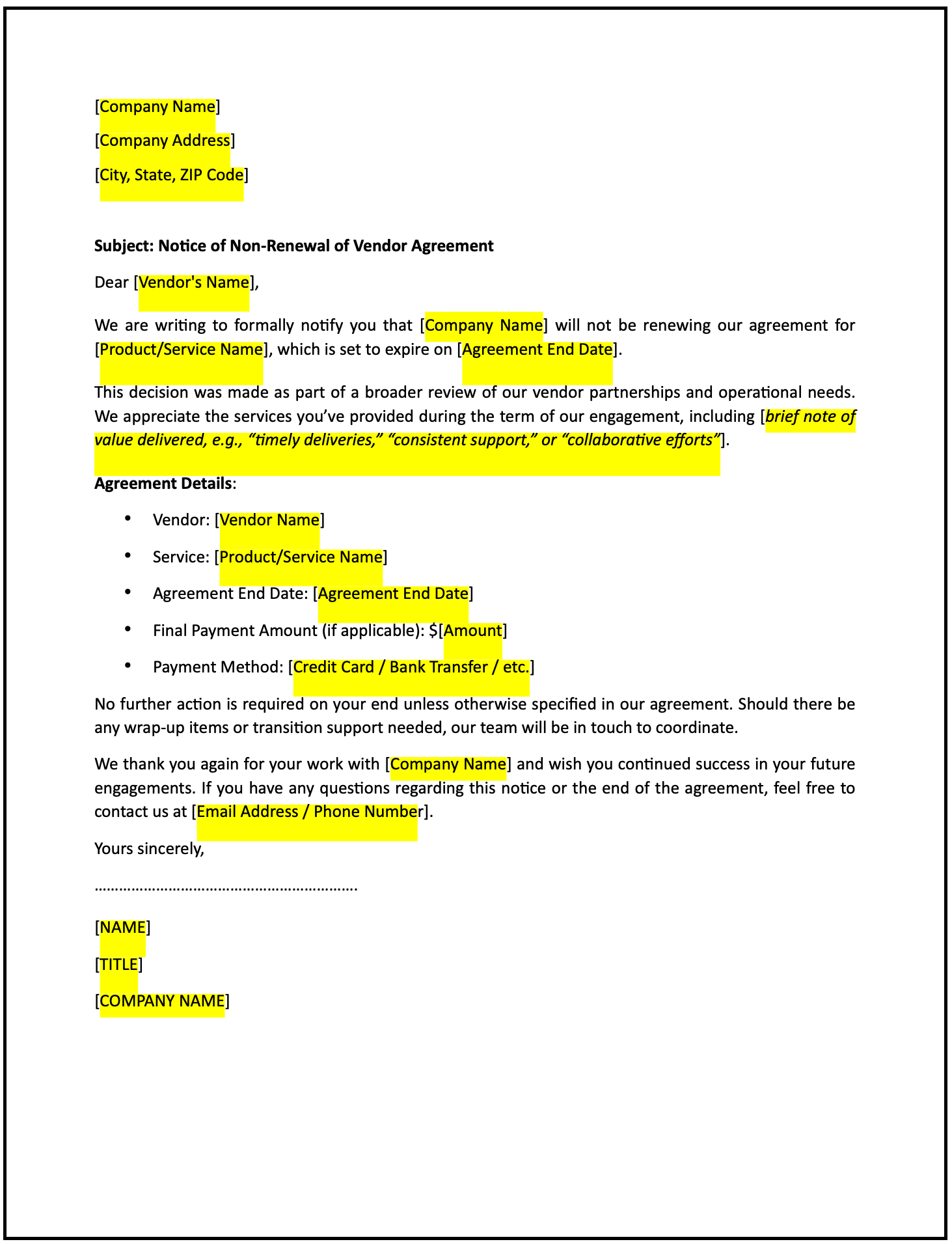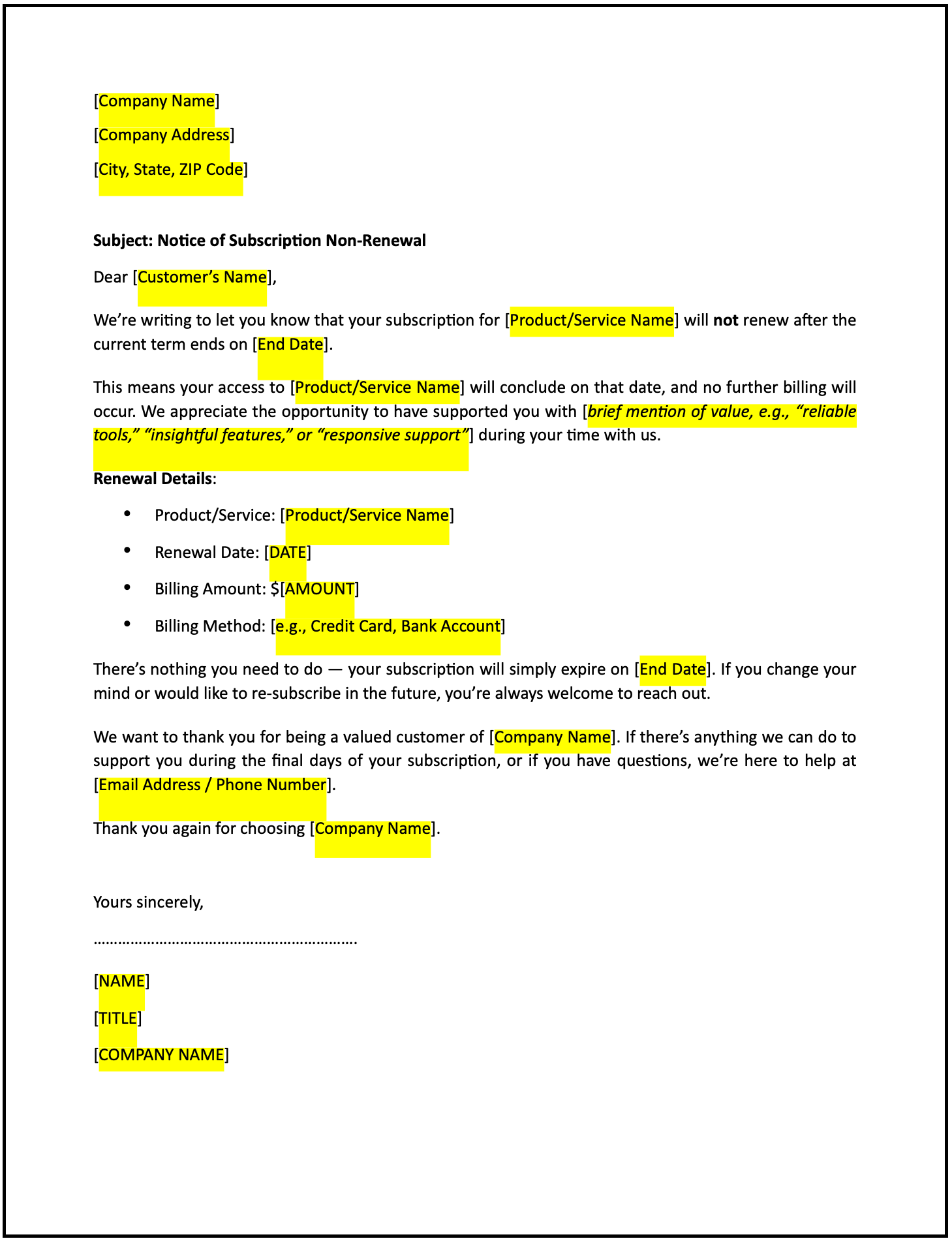Letter of request for third-party expert determination: Free template

Letter of request for third-party expert determination
A letter of request for third-party expert determination is a formal way to propose the involvement of an impartial expert to resolve a specific issue in a dispute. This letter outlines the reason for the request, the scope of the expert’s role, and the anticipated benefits of this approach.
How to use this letter of request for third-party expert determination
- Open with context: Begin by referencing the dispute, agreement, or issue requiring resolution and why expert determination is being proposed.
- State the request: Clearly communicate your request to involve a third-party expert and outline the proposed scope of their determination.
- Justify the approach: Explain why expert determination is the most suitable method for resolving the issue, such as technical complexity or impartiality needs.
- Reference applicable terms: Mention any contractual clauses, industry norms, or legal principles that support expert determination.
- Propose expert criteria: Suggest qualifications, credentials, or types of experts suitable for the issue at hand.
- Invite collaboration: Encourage the recipient to agree to this approach or propose alternative experts or terms.
- Maintain a professional tone: Ensure the letter is respectful, clear, and focused on fostering agreement.
- Provide contact information: Include details for further communication or coordination of the expert selection process.
Benefits of using a letter of request for third-party expert determination
This letter template ensures a structured and professional way to propose expert determination while fostering collaboration and resolution. Here’s how it helps:
- Encourages impartiality: A neutral expert ensures unbiased resolution of technical or complex issues.
- Promotes efficiency: Expert determination often resolves disputes faster than litigation or arbitration.
- Reflects professionalism: A well-crafted request reinforces your commitment to fair and effective resolution.
- Reduces conflicts: Involving an expert minimizes adversarial interactions and focuses on facts.
- Supports documentation: Creating a formal record of the request is valuable for maintaining transparency and accountability.
Tips for writing an effective letter of request for third-party expert determination
- Be specific: Clearly describe the issue requiring expert determination and the desired scope of the expert’s role.
- Use professional language: Maintain a respectful and collaborative tone to encourage agreement.
- Highlight benefits: Explain how expert determination is advantageous for resolving the issue.
- Reference relevant terms: Cite any contractual provisions or industry standards supporting the request.
- Keep it concise: Focus on the key points without overwhelming the recipient with unnecessary details.
Frequently asked questions (FAQs)
Q: What details should I include in this letter?
A: Include references to the issue, reasons for requesting expert determination, proposed scope, and suggested expert qualifications.
Q: Should I personalize the letter?
A: Yes, addressing the recipient directly ensures clarity and demonstrates attentiveness.
Q: Who typically receives this letter?
A: Send the letter to the other party involved in the dispute or issue, such as a partner, vendor, or contractor.
Q: How formal should this letter be?
A: The tone should be highly professional and collaborative, focusing on mutual resolution.
Q: When should this letter be sent?
A: Send the letter promptly after identifying the need for an expert to resolve the issue.
Q: Can this letter include proposed experts?
A: Yes, suggesting specific experts or criteria can streamline the selection process.
Q: Is acknowledgment from the recipient required?
A: While not mandatory, requesting confirmation ensures the letter has been delivered and understood.
This article contains general legal information and does not contain legal advice. Cobrief is not a law firm or a substitute for an attorney or law firm. The law is complex and changes often. For legal advice, please ask a lawyer.


